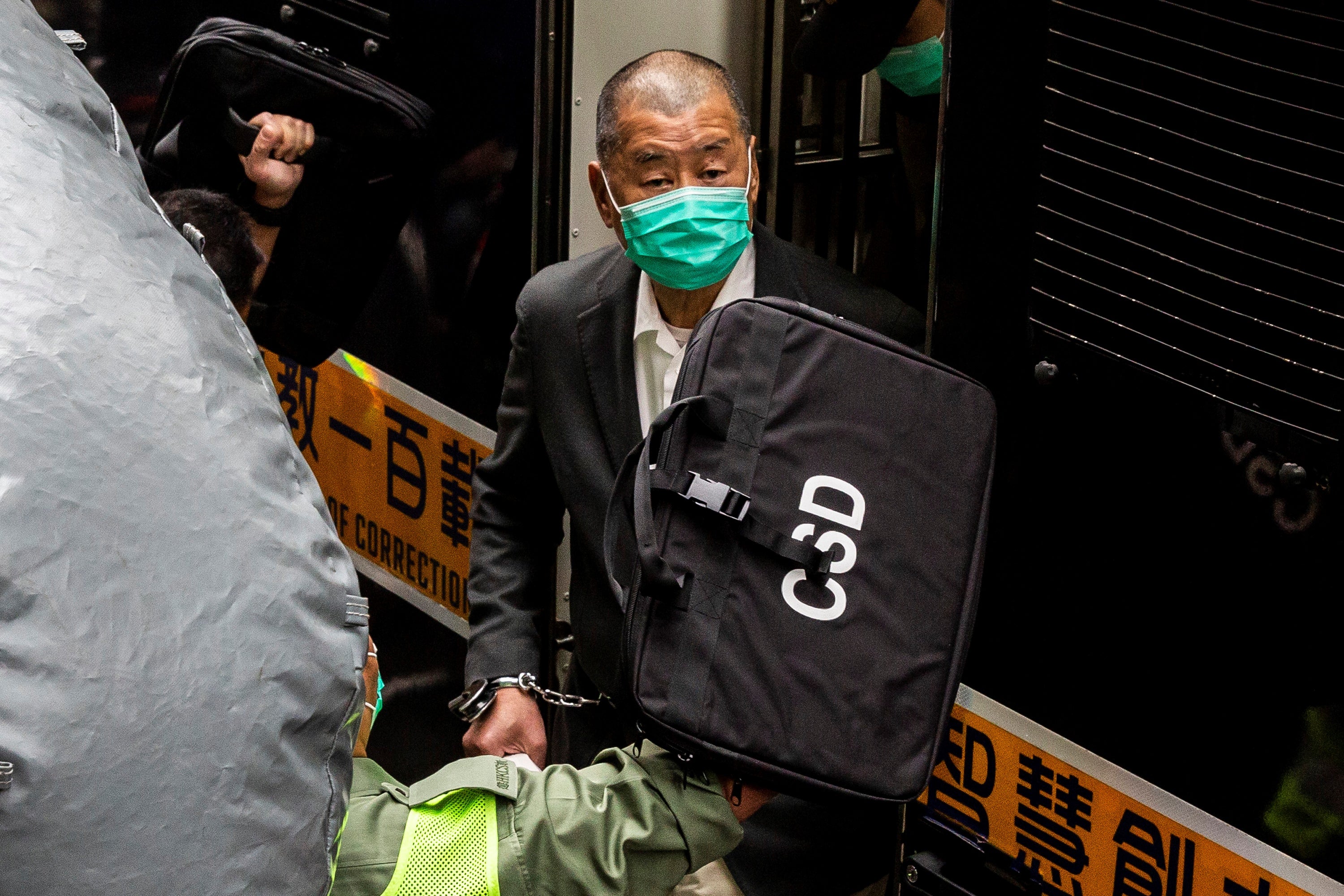Jimmy Lai’s prison sentence in Hong Kong is an insult to justice – and deeply hypocritical
Editorial: Persecuted for years, Lai’s politically motivated conviction has been upheld by the Hong Court of Final Appeal. This is wrong – and reveals just how powerless Britain is

One of the oddities of the Hong Kong legal system is that it still, a quarter century after the end of the colonial era, has British judges sitting on its Court of Final Appeal.
It is part of a historic compromise. The Sino-British Joint Declaration is a binding international treaty that was designed to protect certain democratic rights and the rule of law after the return of the territory to Chinese sovereignty in 1997.
It included an unusual role for visiting British judges to work on sovereign Chinese territory. Since then, with an accelerating trend of aggression, Beijing has sought to ignore, disapply – and finally, in 2015 – unilaterally denounce the treaty, which was due to last until 2047.
Despite all that, British judges still turn up to help hear high-profile cases, and none more notorious than the imprisonment of the local media tycoon, Jimmy Lai, for peaceful protest.
Persecuted for years, Mr Lai’s politically motivated conviction has been upheld by the Hong Court of Final Appeal. David Neuberger, the vestigial British representative, voted to uphold the 14-month sentence dished out to Mr Lai.
Aside from anything else, this is not only offensive to any concept of justice, but crashingly hypocritical on the part of Lord Neuberger, who is a trustee for the charity Prisoners Abroad. This human rights group “provides support to British people affected by overseas imprisonment”.
Mr Lai, who is 76 and a British citizen, may wonder what “support” Lord Neuberger supplied during the proceedings – and whether the judge’s presence served any purpose other than offering the flimsiest veneer of respectability to what is now a puppet court under the influence of the Chinese Communist party.
Lord Neuberger should also heed the example set by colleagues. Recently, two other remaining British overseas non-permanent judges in Hong Kong, Jonathan Sumption and Lawrence Collins, resigned from the bench, as did a Canadian judge, Beverley McLachlin. Lord Sumption declared that Hong Kong was “slowly becoming a totalitarian state” and that “the rule of law is profoundly compromised”.
He said it was “no longer realistic” to think that the presence of overseas judges could help to sustain the rule of law in Hong Kong. He was – and is – correct.
Lord Neuberger pleads: “I do not believe that there is a conflict between my role as a judge and my role as a trustee of Prisoners Abroad.” He offers the defence that he has been defending the rule of law “as best he could” – and adds that his judgment is based on a 1967 colonial-era statute and speaks for itself.
So it does, and it doesn’t convince anyone that Lord Neuberger is doing anyone, including himself – but more grievously Mr Lai – any good by going along with these charades.
The last British governor of Hong Kong, Chris Patten, has got it right when he says that this latest judgment “reveals the rapidly deteriorating state of the rule of law in Hong Kong”; and wonders aloud whether Lord Neuberger’s understanding of legal universal human rights in common law “changed between the first-class waiting room at Heathrow and the arrival terminal of Hong Kong international airport”,
The still more depressing aspect of these latest developments is that it also reveals just how powerless Britain is – and how vulnerable the diplomatic triumph of the Sino-British Declaration was to any upsurge in Chinese nationalism and the souring of relations between London and Beijing.
Lodged formally at the United Nations, the treaty is only enforceable with the force of the UN’s authority. Like the UK, China also holds a permanent seat on the UN General Council.
Without wishing to fall into “Remainiac” obsession, it must also be said that post-Brexit Britain can no longer reliably depend on the heft of the entire European Union to protect its overseas post-imperial complications and obligations – which also include the Falkland Islands, Gibraltar and the British Indian Ocean Territory of Diego Garcia, as well as Belize and Guyana.
Even within the EU, as the predicament of Hong Kong showed, a medium-sized European Union nation such as the UK is continually required to punch above its weight. Now, as Hong Kong’s slide to authoritarian rule demonstrates even more graphically, Britain needs its European friends more than ever.






Join our commenting forum
Join thought-provoking conversations, follow other Independent readers and see their replies
Comments